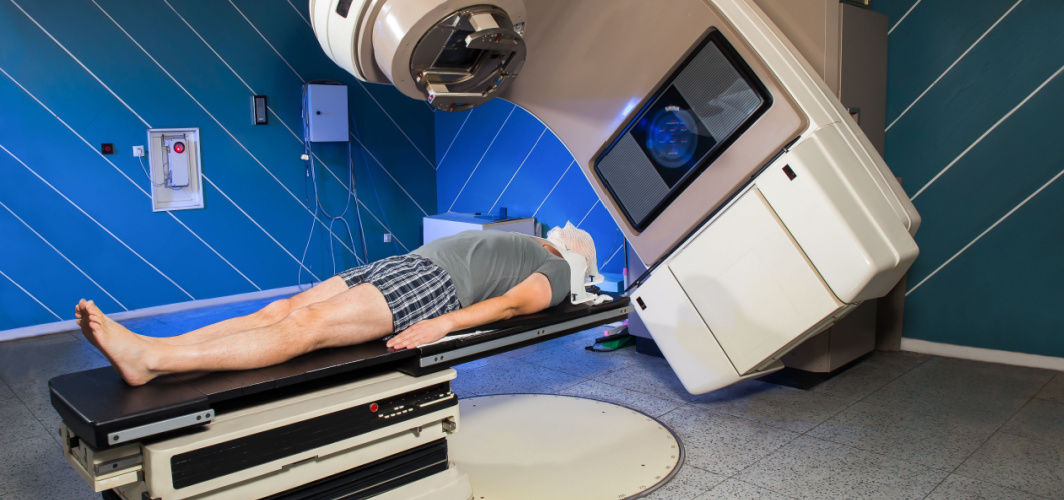General Health
Fibroscan Liver: Liver Elastography Procedure, Testing Preparation & Expectations
6 min read
By Apollo 24|7, Published on - 16 June 2023
Share this article
0
5 likes

Liver biopsy has been the gold standard procedure, for identifying fibrosis in the liver, for years. However, with the advancement of technology in the medical field, liver biopsy is now slowly being replaced with a non-invasive test procedure known as fibroscan. In this article, we are going to discuss all the important things to know about fibroscan.
What Is A Fibroscan?
FibroScan testing is an FDA-approved, non-invasive diagnosing tool used to analyze your liver's health. It checks your liver for scars or fibrosis, which may be caused by different liver diseases.
It is very similar to undergoing a conventional liver ultrasound exam. Although, a liver fibroscan is much quicker, painless, and easy. It is often treated as a non-surgical alternative to traditional liver biopsy to analyze if there has been any damage.
You can also evaluate your liver health with our, Apollo’s Liver Check Test
When Should You Get A Fibroscan Liver Test?
Your doctor is likely going to recommend a fibroscan test if you are suffering from a chronic liver condition, including the following:
- Hepatitis B
- Hepatitis C
- Autoimmune Hepatitis
- Cirrhosis
- Genetic diseases
- Alcoholic liver disease
- Non-alcoholic steatohepatitis or NASH
What Is A Liver Elastography Procedure?
The process in which a surface ultrasound probe is used to deliver a low-frequency pulse or shear wave to a small volume of liver tissue under the ribcage is known as a liver elastography procedure.
A doctor usually asks it to determine the severity of hepatic fibrosis in patients with chronic liver disease. The test can also determine if an HCV patient has advanced fibrosis or cirrhosis.
How To Prepare For A Fibroscan Test Procedure?
To prepare for the fibroscan procedure, you must coordinate with your health provider and follow the steps mentioned below. They include:
- Do not consume food or liquids for accurate results at least 3 hours before the test procedure.
- Make sure that you arrive at least 10 to 15 minutes early from the scheduled procedure time.
- Do not forget to bring your identification proof and your medical records to the medical center.
- A fibroscan liver test does not require any form of sedation. You are free to drive yourself to and from the test.
- The process should not take more than 30 minutes since the test itself takes 5 to 10 minutes.
- Make sure that you wear loose-fitted clothing to the medical center since you will be asked to lie on your back with your right arm at the back of your head and the abdominal area exposed.
- A medical professional shall apply a water-based gel to your skin. The next step involves the placement of a non-invasive probe over your liver.
- During the process, you may feel slight vibrations at the probe's tip on the skin. This occurs because the probe delivers ultrasound waves to that area for measuring purposes
What To Expect After The Fibroscan Test Is Complete?
The computer shall analyze your information and check for abnormal changes. These results are provided almost instantly after the test is completed. The medical professional conducting the test shall provide you with a copy of the results once your appointment is complete. Since the process is non-invasive, you can immediately get back to your daily routine.
How To Read Fibroscan Reports?
Fibroscan reports are broadly categorized into four levels including -
- F0 to F1 - No or minimal liver scarring
- F2 - Moderate lover scarring
- F3 - Sever scarring in the liver
- F4 - Advanced liver scarring (cirrhosis)
What Can The Reports Indicate?
Fibroscan reports can reveal fatty changes to the liver or identify scarring. Here are a few conditions that fibroscan reports can indicate:
1. Liver stiffness
Fibroscan report provides a statistic-based evaluation of your liver stiffness, which is a major indicator of liver fibrosis.
2. Liver fibrosis stage
Ranging from F0 to F4, the stage of stiffness indicates the progression of liver disease.
3. Fatty liver or steatosis
Fibroscan models can assess fat accumulation in the liver (steatosis).
How To Reduce Fibroscan Score?
Here are a few ways that can help reduce your fibroscan:
1. Cut down on alcohol.
2. Maintain a nutritious diet with a balance of proteins, carbohydrates, vitamins, and minerals.
3. Maintain a healthy weight by exercising regularly.
4. Avoid exposure to toxins such as comfrey, kava, valerian, mistletoe, and traditional Chinese herbs.
What Are The Complications Of Fibroscan?
While generally considered to be a safe procedure, there can be a few complications associated with fibroscan. Here are a few things to consider:
- Inaccuracy in some cases: Fibroscan results may be less accurate in patients that are obese or have narrow intercostal spaces (space between the ribs). These factors affect the quality of the scan.
- Dependency on the operator: Fibroscan results also depend on the operator’s experience and technique. Unseasoned operators can be inefficient during the procedure leading to less reliable readings.
- Limited assessment: Fibroscan primarily focuses on evaluating liver stiffness which causes it to be less informative about liver function or diseases. You may have to get additional tests to properly assess the condition of your liver.
- Discomfort or pain: Certain patients can face uneasiness or pain when the probe is placed against the skin during the examination.
Takeaway
Despite being an effective diagnostic test, you must take your physician’s recommendation before proceeding with a fibroscan test. Discuss the risks and benefits the test offers in your case. If you have more concerns, you can ask our experts.
Frequently Asked Questions (FAQs)
Q. What is the cost of a Fibroscan test in India?
Fibroscan tests in India usually cost anywhere from Rs. 6,000 to Rs. 7,000.
Q. Is Fibroscan better than CT scan?
There is an almost negligible statistical difference between the two methods. Your doctor would be the better judge of which test is necessary for your case.
Q. What is the normal range of a fibroscan score?
The normal range for a fibroscan score usually ranges between 2 to 7 kPa with the average normal result being 5.3 kPa.
Q. Can fibroscan scores improve over time?
Yes, with significant lifestyle changes such as quitting alcohol consumption, exercising regularly, and consuming a healthy diet, fibroscan scores can change drastically.
Q. How often should I repeat fibroscan?
Depending on your condition, you may require a fibroscan anywhere from once a year to once in three years. It usually depends on the results of your last fibroscan test.
Medically reviewed by Dr. Sonia Bhatt.
General Health
Leave Comment
Recommended for you

General Health
6 Reasons Why You Should Drink Water On An Empty Stomach
Water possesses several properties that help in improving your immunity, fighting infections, increasing your metabolism, and flushing out toxins. Hydrating yourself right after you wake up is the key to a healthier lifestyle.

General Health
Here's Why You Are Always Bloated!
Have you ever had your stomach tight after eating a particular food? If so, you may be experiencing bloating. You can prevent bloating with simple changes to your food habits. Read along to find some interesting facts about bloating.

General Health
How Does Stereotactic Body Radiation Therapy Help Cancer Patients?
Stereotactic body radiation therapy is an effective cancer treatment for various types of body cancers. The treatment uses radiation beams to target cancer cells. The procedure is safe and has minimal side effects.
Subscribe
Sign up for our free Health Library Daily Newsletter
Get doctor-approved health tips, news, and more.
Visual Stories

The Best Exercises for Controlling Blood Sugar Levels
Tap to continue exploring
Recommended for you

General Health
6 Reasons Why You Should Drink Water On An Empty Stomach
Water possesses several properties that help in improving your immunity, fighting infections, increasing your metabolism, and flushing out toxins. Hydrating yourself right after you wake up is the key to a healthier lifestyle.

General Health
Here's Why You Are Always Bloated!
Have you ever had your stomach tight after eating a particular food? If so, you may be experiencing bloating. You can prevent bloating with simple changes to your food habits. Read along to find some interesting facts about bloating.

General Health
How Does Stereotactic Body Radiation Therapy Help Cancer Patients?
Stereotactic body radiation therapy is an effective cancer treatment for various types of body cancers. The treatment uses radiation beams to target cancer cells. The procedure is safe and has minimal side effects.